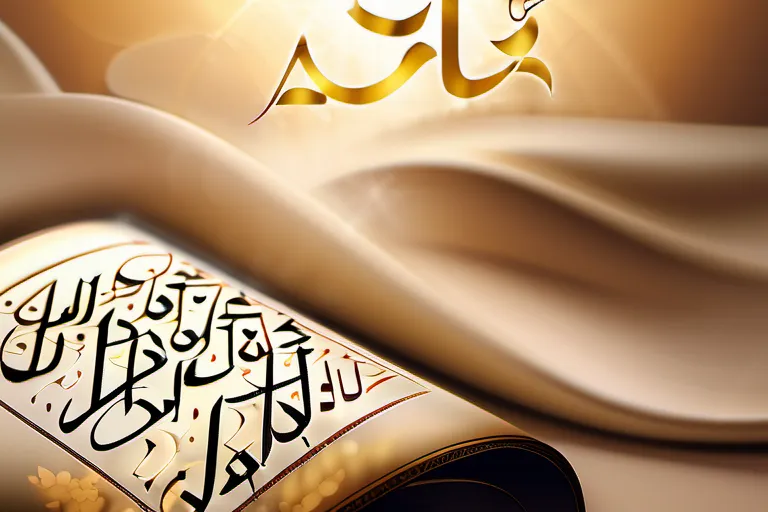Explore the role, history, and importance of Arabic language in the Islamic faith.
Delve into the profound significance of the Arabic language within the Islamic faith. From its origins to its role as a sacred text, this article will provide an enlightening journey through the linguistic heart of Islam.
The Origins of Arabic: A Historical Perspective
The origins of Arabic trace back to the ancient Semitic languages, evolving over millennia through cultural exchanges and historical conquests. Imagine Arabic as a river, its waters constantly flowing but changing course with every tributary it meets. How did this language become the bedrock of Islamic culture and communication? To understand this, we must delve into its rich history.
Is it not fascinating how languages shape civilizations? The roots of Arabic can be traced to the early Semitic languages spoken in the Arabian Peninsula. Over time, these dialects merged and evolved under the influence of trade, conquest, and religious interaction. By the 7th century CE, when Islam emerged, Arabic had already taken on a significant role.
The rise of the Islamic caliphate under the Umayyad dynasty saw Arabic spread far beyond its original borders. It became the language of administration, literature, and religious scholarship across the vast expanse of the Muslim world. This transformation can be likened to a tree that roots itself deeply in one soil but bears fruit in lands far away.
The cultural renaissance during the Abbasid era further cemented Arabic‘s status as the lingua franca of the Islamic world. Think of it as a golden age where knowledge and wisdom flourished, all expressed in the eloquent tongue of Arabic. From poetry to philosophy, every realm of human thought was captured by this language, making it not just a means of communication but a symbol of cultural identity.
In essence, the history of Arabic is intertwined with the spread and growth of Islam. It serves as both a vehicle for understanding sacred texts and a lens through which the rich tapestry of Islamic culture can be seen. As we explore further into this guide, you’ll discover how deeply Arabic has shaped not just religious practices but also the very fabric of Muslim societies.
Arabic in the Quran: The Sacred Text
The Quran, the holy book of Islam, holds a unique and sacred place that goes beyond its mere text. It is not just any written work; it is the preserved word of God, delivered to humanity through the Prophet Muhammad. How does one even begin to comprehend the significance of Arabic in this context? Is it merely a language, or does it carry a deeper spiritual meaning?
Arabic in the Quran is more than just words on paper—it’s a gateway to understanding the divine will. The unique linguistic features of Arabic enhance its ability to convey profound messages with precision and clarity. The rhythmic patterns, the rich vocabulary, and the intricate grammar all contribute to a text that resonates deeply within the hearts and minds of Muslims worldwide.
Why is it considered the preserved word of God? Some scholars argue that the choice of Arabic was not arbitrary but deliberate, emphasizing its purity and sanctity. The language itself seems to carry an almost mystical quality, as if each letter holds a deeper meaning. Could this be why the Quran’s translations often fail to capture the full essence of the original text?
Moreover, the preservation of the Quran in Arabic ensures that Muslims can recite and memorize it with ease, enhancing their spiritual connection. The act of recitation is not just about reading; it’s a ritual that involves the body and soul, making every word resonate with personal significance. How many times have you heard someone say, “I can’t remember my prayers without remembering the words of the Quran?”
The significance of Arabic in Islam goes beyond mere communication—it is a bridge between the divine and the human. In a world where languages change over time, the preservation of the Quran’s original language ensures that its message remains constant and unaltered. How can we truly understand the timeless wisdom within these verses without recognizing the role of Arabic?
The Spread of Islam and the Role of Arabic
The spread of Islam across the world was a phenomenon that transcended time and geography, much like the waves of an ocean spreading across vast expanses. But how did this religion, originating from one region, manage to establish itself in so many diverse lands? One key factor that played an instrumental role in its proliferation is the use of Arabic. This language became not just a means of communication but a tool for unity among Muslims worldwide.
Imagine a vast tapestry, where each thread represents a different culture or region. Now, picture how this tapestry can only be woven smoothly when all threads are interlaced with a common thread—Arabic. Just as the River Nile brings life to its banks, Arabic served as the lifeblood that nourished the growth of Islamic teachings and practices in far-flung lands.
The language acted like a bridge, connecting people who spoke different tongues but shared the same faith. It was through Arabic that the Holy Quran could be read and understood by Muslims across continents, ensuring that every Muslim community had access to the same divine words. Moreover, religious texts, scholarly works, and legal codes were all written in Arabic, providing a uniform framework for Islamic practices.
Consider how this linguistic unity facilitated the spread of Islam. It was as if the seeds of knowledge were carried by the winds of trade and conquest, but it was the fertile ground of Arabic that allowed them to flourish. The language not only preserved the essence of Islamic teachings but also enabled their adaptation to local contexts, ensuring relevance in diverse cultural landscapes.
In this journey, Arabic served as a unifying force, much like a compass guiding travelers through unfamiliar terrains. It provided a common thread that helped bind the global Muslim community together, despite geographical and linguistic differences. As we reflect on the role of Arabic in the spread of Islam, it is clear that without it, the expansive Islamic civilization might have looked quite different.
Arabic in Islamic Scholarship: A Legacy of Knowledge
The role of Arabic in Islamic scholarship is akin to the veins that nourish a tree, ensuring its strength and vitality. Imagine a vast library where every book is written in a language that transcends time—Arabic. In this world of knowledge, scholars from various parts of the globe can communicate seamlessly, bridging gaps not just with words but with understanding.
The significance of Arabic extends beyond its use as a lingua franca; it has shaped Islamic thought and contributed immensely to fields such as law, science, medicine, and philosophy. Think about it: how could Al-Khwarizmi, the father of algebra, have revolutionized mathematics without the language that allowed him to describe complex equations? Or consider the Qur’an itself, which contains divine wisdom in a language that is both poetic and profound.
The contributions of Arabic scholars to the world are numerous. The term ‘algorithm,’ for instance, originates from the name of the Persian mathematician Al-Khwarizmi. His works laid the foundation for modern computing, yet many today might not realize his debt to Arabic as a medium of expression. Similarly, in medicine, the work of Avicenna (Ibn Sina) in his monumental “Al-Qanun fi al-Tibb” has influenced medical education for centuries.
Arabic not only preserved knowledge but also expanded it. During the Islamic Golden Age, scholars built upon Greek and Roman wisdom, adding their own insights to create a rich tapestry of intellectual achievement. The language itself evolved, adapting to new concepts and ideas, just as a river changes course over time, carrying with it the legacy of its journey.
Today, as we stand on the shoulders of these giants, Arabic continues to play a vital role in Islamic scholarship. It is not merely a tool for communication but a symbol of tradition and identity. As new challenges arise, the importance of maintaining this linguistic heritage becomes more apparent, ensuring that the wisdom of the past informs our present and future.
The Importance of Arabic in Modern Islam
The importance of Arabic in modern Islam cannot be overstated. It’s like the heart that beats at the core of every Muslim’s spiritual and cultural life, but it has evolved to embrace the complexities of contemporary times. How does a language that has been central for centuries still resonate so deeply in today’s world?
In many ways, Arabic remains the sacred vessel that preserves the essence of Islam. It is through the recitation and memorization of the Quran, written primarily in Arabic, that Muslims connect with their faith on a profound level. The language serves as a timeless bridge between past and present, ensuring that the teachings remain intact across generations.
However, the significance of Arabic extends far beyond its religious functions. It plays a vital role in the social fabric of Muslim communities worldwide. From academic discourse to daily interactions, Arabic is more than just a means of communication; it embodies the rich cultural heritage and intellectual tradition of Muslims.
In contemporary societies, the continued relevance of Arabic can be seen in its use in education, media, and digital platforms. It is no longer confined to traditional settings but has adapted to new technologies, making it accessible to a wider audience. This transformation highlights how Arabic has grown with the times while maintaining its core values.
Moreover, the preservation of Arabic has become a matter of pride for many Muslims. Efforts to revive and maintain the language reflect a commitment to upholding Islamic principles and traditions in an ever-changing world. It’s like navigating through a maze, where every word carries weight and significance.
Despite these advancements, challenges remain. The diversity of dialects and the need for more accessible resources can sometimes hinder widespread proficiency. But the dedication to learning and using Arabic continues, driven by a deep-seated belief in its importance.
The journey of Arabic in modern Islam is not just about maintaining an ancient language; it’s about redefining its role in the 21st century. As Muslims adapt and evolve, so too does their relationship with this revered language, ensuring that its significance endures for future generations.
Learning Arabic: A Spiritual Journey
Learning Arabic: A Spiritual Journey
Imagine diving into a pool of knowledge, where every sentence you read is like a sip from a fountain of wisdom. Why would anyone willingly undertake such a challenge? Well, for many Muslims, learning Arabic isn’t just about reading; it’s a spiritual journey towards deeper understanding and connection with their faith.
Why does Islam place such importance on Arabic? Could it be that the language itself holds a special key to unlocking the essence of the Quran? The Quran was revealed in Arabic, making it not just any text, but a holy book that requires reverence and respect through its original tongue. How can one fully appreciate the divine message without understanding every nuance?
The journey of learning Arabic is fraught with challenges—both linguistic and emotional. It’s like trying to climb a mountain; every step forward is hard-earned. For some, mastering the language might mean sacrificing precious time or resources. But isn’t it worth it when you can recite Surahs from memory, understand the subtle meanings behind each word, and feel closer to Allah?
Moreover, learning Arabic opens doors to Islamic literature—hadiths, commentaries, and poetry—that provide insight into the lives of the prophets and scholars. It’s like walking in the footsteps of those who came before us, gaining a unique perspective on their experiences and teachings. How can one truly grasp these teachings without engaging with them in their original form?
Despite the challenges, the journey is rewarding. Each new phrase learned feels like a piece of a puzzle fitting into place, gradually revealing a more profound understanding of Islam. It’s not just about knowledge; it’s about transformation and spiritual growth.
So, why do so many Muslims embrace this challenge? Because for them, learning Arabic isn’t merely academic—it’s a way to deepen their faith, strengthen their bond with Allah, and experience the beauty and richness of Islamic heritage firsthand. It’s more than just words on a page; it’s a bridge connecting past and present, a path to spiritual enlightenment.
Conclusion
 Gain a deeper understanding of the importance of Arabic in Islam and appreciate its unique role in preserving and spreading the teachings of the faith.
Gain a deeper understanding of the importance of Arabic in Islam and appreciate its unique role in preserving and spreading the teachings of the faith.











